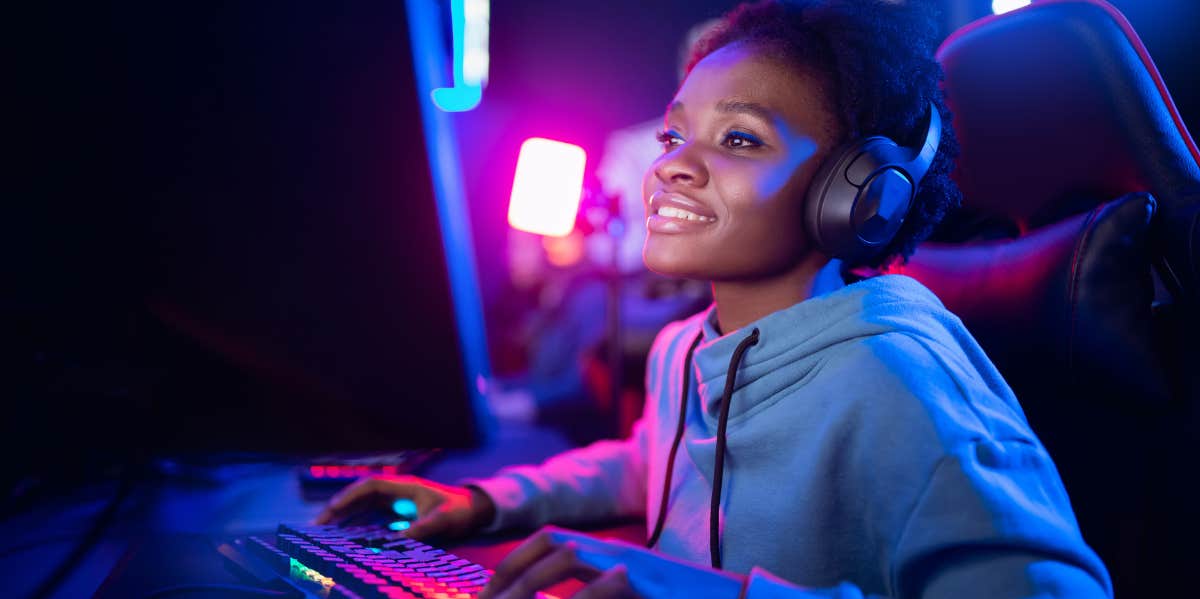The Strange Sensation That Causes Anxiety Attacks In People Who Play Video Games
Don't spend too long in VR.
 Parilov / Shutterstock
Parilov / Shutterstock Video games have come a long way since the days of the Atari and simple games like Frogger, Donkey Kong, and Pac-Man.
With technological advances, gamers can now insert themselves directly into their gameplay, giving them an opportunity to "feel" the experience.
Mirroring the actions you take in virtual reality (VR) games can be thrilling and exhilarating. But those phantom feelings can also be detrimental to your health if you aren't taking proper precaution.
What is phantom sense?
Phantom sense is what happens when you feel sensations based on something that has happened to you in virtual reality.
It is the pain, fear, or angst you feel when getting shot or stabbed in the imaginary world. Because you "know" what it would feel like, your body automatically generates those responses.
This phenomenon is the same one that amputees have been known to experience. Although the limb is gone, they are used to it being there, so they still have feelings and pains in that now-removed body part.
This immersion is the result of deep engagement in the gaming experience — so deep that it becomes real.
Phantom sense has also been known to induce anxiety in VR.
The human brain is powerful and almost magical. The virtual reality world is action-packed, requiring immediate reactions and limiting the time the brain has to process information.
As a workaround, the brain takes shortcuts based on data acquired throughout your life. In VR, eventually, the mind goes on autopilot, making a best guess without waiting to receive all of the necessary signals.
Now, you are conditioned to respond to audio and visual cues as you might in reality. The responses to these stimuli create intense feelings of anxiety on a regular basis.
A TikToker by the name of Alpha explains the phenomenon of phantom touch, pain, taste, and pleasure.
What causes phantom sense?
We perceive the world around us through our five senses. In addition, our brains take in information about our world in relation to our bodies.
Raw information is transmitted from your ears, eyes, and other sense organs to your brain, where it is translated into something your conscious mind can understand.
Combine that with our prior learnings and experiences from simply being in this world to fill in the blanks, and phantom senses are born.
In virtual reality, phantom symptoms, also known as “body transference,” are seen when players take "ownership" of things that are not really a part of them.
For instance, you are carrying a gun or knife in the game and get the sensation you can actually "feel" it in your hand because that’s what you expect logically.
Your life is at risk in the virtual world, and you experience the same emotions you would if it happened to you in real life: fear, anxiety, and stress.
This is no accident. VR is specifically designed to induce the feeling that you are actually experiencing what you are in the game.
You accept ownership of your virtual body, thereby having realistic feelings and sensations. This is very common among amputees, with 50-80% of people experiencing sensations in limbs they no longer have.
To make a long story short, neurons in the brain correspond to parts of the body and skin. These neurons make certain assumptions about experiences and send signals to your physical being.
Can you develop a phantom sense?
It is possible to develop a phantom sense over time. As a matter of fact, many gamers take specific actions to bring on phantom sensations and enhance the gaming experience.
One way that phantom sense can be developed is with the help of a friend. Sitting with them in reality and syncing both of your actions in virtual reality will make them seem real.
Other ways to develop a phantom sense is to get intoxicated. The lack of inhibitions and more relaxed mindset can open the door to phantom senses.
But really, it just takes time and repetition to develop a phantom sense. Some people will get it and others won’t.
NyRee Ausler is a writer from Seattle, Washington, and author of seven books. She covers lifestyle, entertainment and news, and self-focused content, as well as navigating the workplace and social issues.
